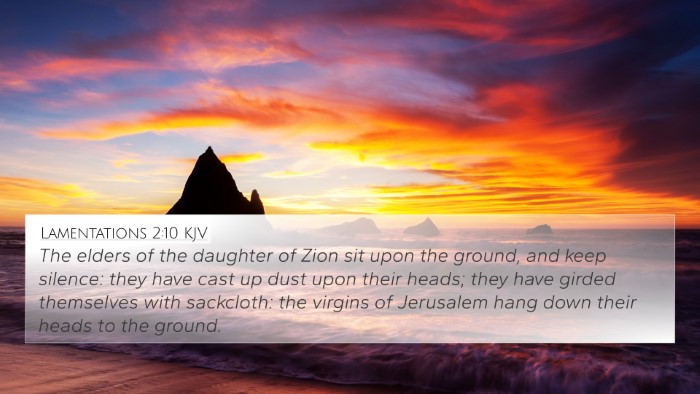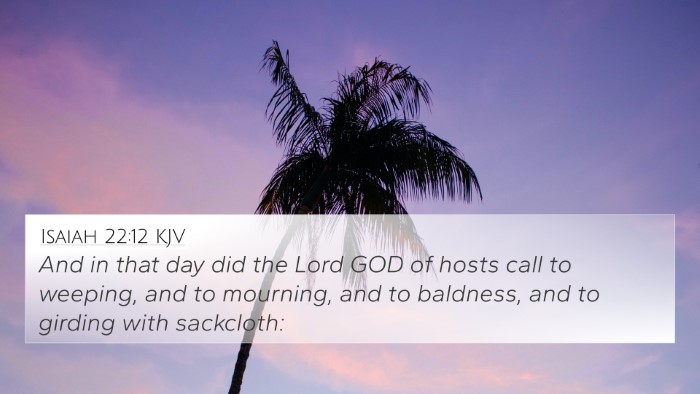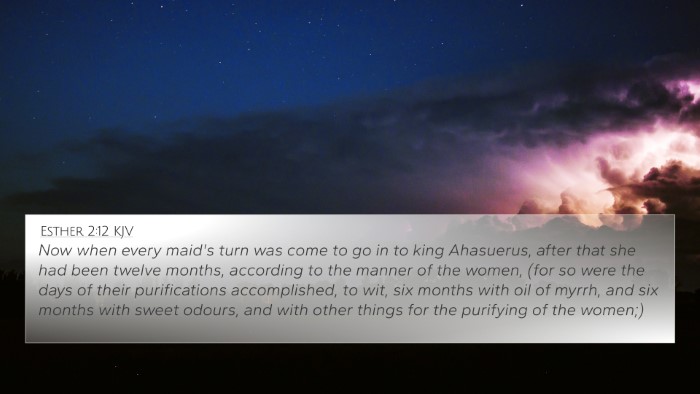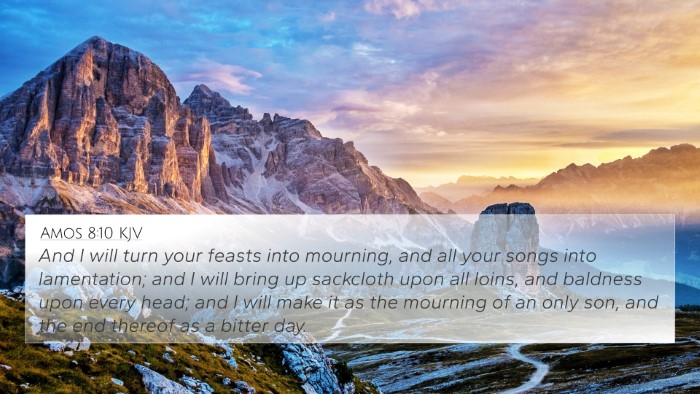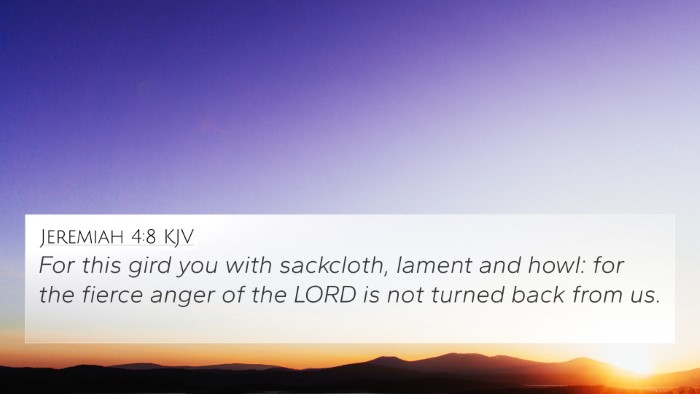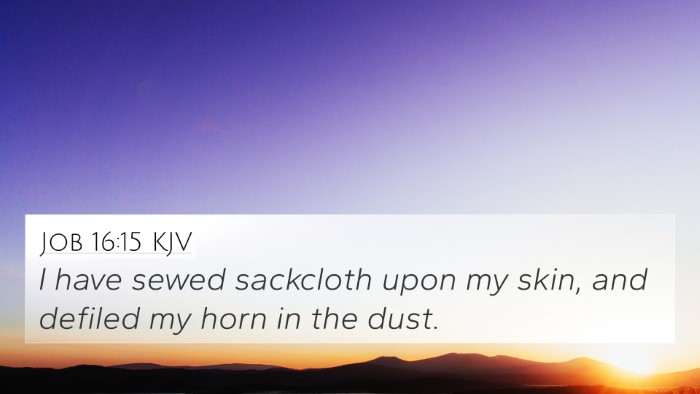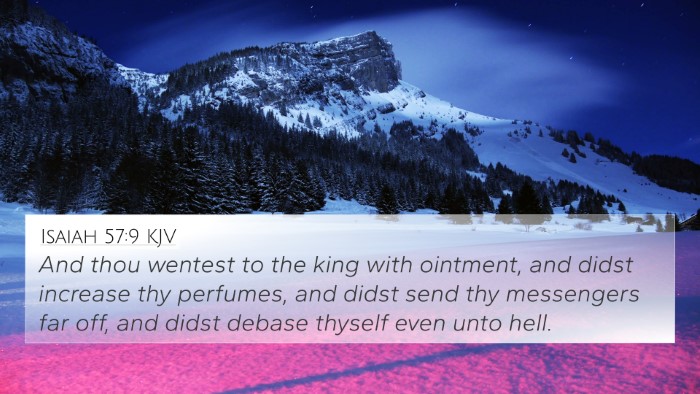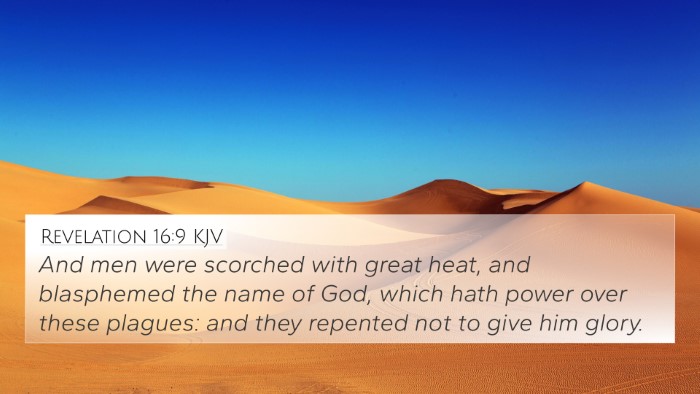Understanding Isaiah 3:24
Isaiah 3:24 is a compelling verse within the book of Isaiah that highlights themes of judgment and the consequences of moral decline. The verse states:
"And it shall come to pass, that instead of sweet smell there shall be stink; and instead of a girdle, a rent; and instead of well-set hair, baldness; and instead of a stomacher, a girding of sackcloth; and burning instead of beauty." (Isaiah 3:24, KJV)
Summary of Insights from Public Domain Commentaries
This verse can be interpreted in multiple layers, particularly focusing on social and spiritual repercussions associated with a society's moral decay.
Matthew Henry's Commentary Insights
Henry emphasizes the contrasting imagery present in this verse. The “sweet smell” represents the beauty and splendor of a nation in favor with God, while the “stink” symbolizes not only decay but also the foulness resulting from God's judgment. He notes that the external adornments and privileges will be exchanged for signs of shame and desperation, reflecting the true inner corruption of the people.
Albert Barnes' Exegesis
Barnes highlights the figurative nature of the items mentioned. Each item—sweet smell, girdle, hair, stomacher—signifies not only physical beauty but also the pride and prosperity that Israel enjoyed. The mention of “baldness” and “sackcloth” illustrates a stark reversal of fortunes where the people are stripped of their dignity and comfort due to their sins. Barnes connects this downfall to the broader theme of divine retribution.
Adam Clarke's Commentary Interpretation
Clarke provides a clarifying explanation of each metaphor. He suggests that “baldness” symbolizes loss and mourning, while “sackcloth” denotes penitence and dire circumstances. Clarke's perspective sharpens the focus on the necessity of humility before God, which the people ignored, leading to their plight. Clarke’s attention to the social customs enhances our understanding of the cultural context of this judgment.
Cross-References Related to Isaiah 3:24
- Jeremiah 13:22 - Depicts the consequences of sin resulting in shame and disgrace.
- Amos 8:10 - Speaks of a day of mourning and the loss of joy, paralleling the theme of judgment.
- Lamentations 1:8-9 - Illustrates the desolation of Jerusalem, reflecting the dire consequences of sin.
- Ezekiel 16:30 - Addresses the unfaithfulness of Israel and its results, similar to what is foretold in Isaiah.
- Micah 1:16 - A call to mourning that resonates with the themes of despair found in Isaiah 3:24.
- Matthew 11:21 - Jesus lamenting over unrepentant cities ties to the theme of judgment against moral decay.
- Revelation 18:10 - The fall of Babylon as a judgment theme echoes the warnings in Isaiah against moral failure.
Linking Bible Scriptures: Thematic Connections
The verse's themes resonate deeply with various instances throughout both Testaments regarding the consequences of a nation's or individual’s sinfulness:
- Consequences of Sin: The correlation with Romans 6:23 emphasizes that the wages of sin is death, highlighting inevitable judgment.
- Judgment and Mourning: The mourning aspect connects with Joel 1:13 where the priests mourned due to the people's spiritual barrenness.
- Personal Transformation: Isaiah 61:3 calls for a transformation of despair into beauty, contrasting the desolation in Isaiah 3:24.
Practical Applications for Cross-Referencing Bible Verses
To study Isaiah 3:24 effectively, one can utilize a systematic approach to cross-referencing using various tools:
- Bible Concordance: A tool to locate scriptures that share common themes or vocabulary.
- Bible Cross-Reference Guide: Essential for finding parallels across both Testaments.
- Digital Bible Study Tools: Many modern applications feature built-in cross-referencing systems.
- Comparative Bible Verse Analysis: User-friendly resources that allow side-by-side scripture comparisons.
Conclusion: Engaging with Isaiah 3:24
In conclusion, Isaiah 3:24 serves as a vivid reminder of the consequences of moral decay. The contrasting images provide a basis for broader theological reflection and ethical considerations in both personal and communal contexts. By engaging with cross-references and understanding the themes of judgment and repentance, readers can find deeper connections between Biblical texts and apply these lessons to their lives effectively.
Consequently, exploring these connections and using cross-referencing tools enriches our understanding of scripture, allowing for a more nuanced grasp of the overarching arc of the Bible and its applications in our spiritual journey.




